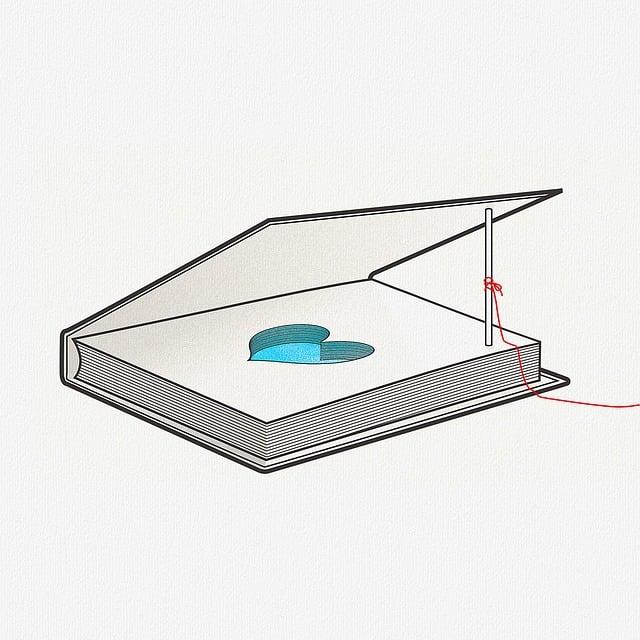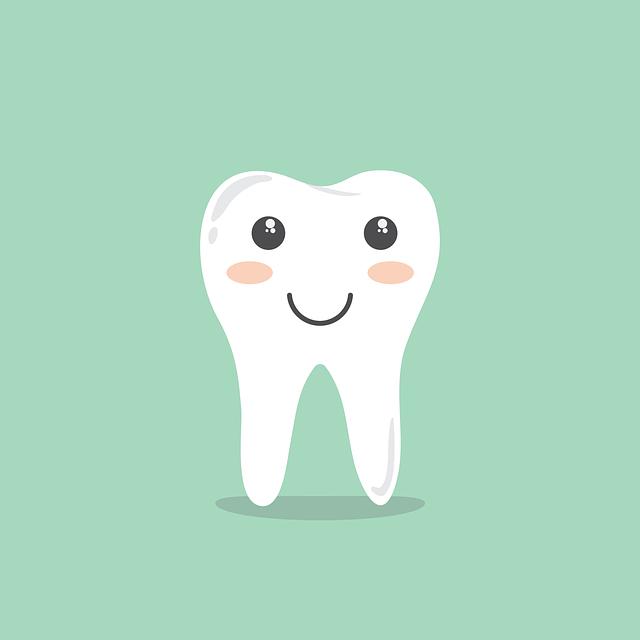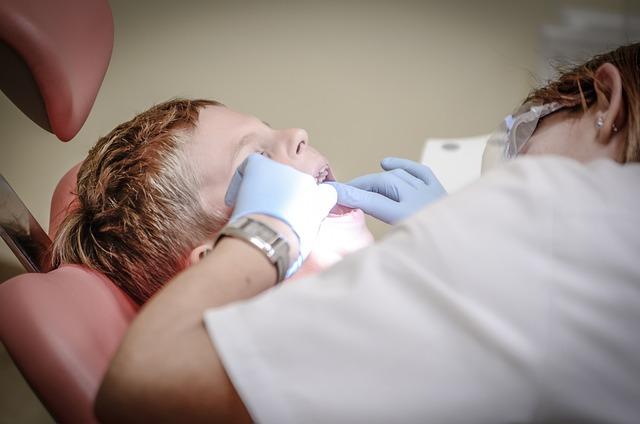Can I Rinse with Salt Water After Tooth Extraction: Explained
When it comes to recovering from a tooth extraction, many people are eager to find ways to alleviate discomfort and promote healing. One question that often arises is whether rinsing with salt water is a safe and effective practice. In this article, we will delve into the topic and provide a confident and knowledgeable explanation about the use of salt water rinses after tooth extraction. By the end, you’ll have a clear understanding of whether this simple remedy can truly aid in your recovery process.
1. Understanding the Benefits and Risks: Rinsing with Salt Water After Tooth Extraction
Rinsing with salt water after tooth extraction can provide several benefits and also carry some risks. It is important to understand both aspects before incorporating this practice into your post-extraction care routine.
Benefits of rinsing with salt water:
- Promotes healing: Salt water has natural antiseptic properties that can help prevent infections and promote faster healing of the extraction site.
- Reduces pain and swelling: Salt water can help reduce pain and swelling by reducing inflammation in the area.
- Keeps the area clean: Rinsing with salt water can help keep the extraction site clean and free from debris, minimizing the risk of infection.
Risks of rinsing with salt water:
- Over-rinsing: Excessive rinsing with salt water can disrupt the formation of blood clots, which are crucial for proper healing.
- Delayed healing: If the salt water concentration is too high or the rinsing technique is too aggressive, it can slow down the healing process.
- Allergic reactions: Some individuals may be allergic to salt or experience irritation from the salt water solution.
It is important to consult with your dentist or oral surgeon before starting any post-extraction care routine, including rinsing with salt water. They can provide specific guidelines based on your individual case to ensure optimal healing and minimize any potential risks.

2. The Science Behind Salt Water Rinses: Explaining their Healing Properties
Salt water rinses have long been used as a natural remedy for various oral health issues. The healing properties of salt water rinses can be attributed to the science behind their composition and the way they interact with the mouth. Here’s a breakdown of the science that explains why salt water rinses are so effective:
1. Osmosis: Salt water has a higher concentration of salt compared to the cells in our mouth. When we rinse with a salt water solution, it creates a hypertonic environment. This causes osmosis to occur, where water molecules move out of the cells in our mouth and into the salt water solution. This process helps in reducing inflammation and swelling, providing relief from discomfort.
2. Antimicrobial properties: Salt is a natural antimicrobial agent that can help kill bacteria and other microorganisms present in the mouth. When we rinse with salt water, the salt interacts with the microorganisms, disrupting their cell membranes and inhibiting their growth. This can be particularly beneficial for soothing sore throats, fighting infections, and reducing the risk of dental infections.
3. Wound healing: Salt water rinses also promote wound healing in the mouth. The saline solution helps cleanse the affected area, removing debris and bacteria. Additionally, the rinsing action stimulates blood flow to the area, bringing essential nutrients and oxygen to promote healing. This can be especially helpful after oral surgeries, tooth extractions, or when dealing with mouth sores.
Incorporating salt water rinses into your oral care routine can provide numerous benefits for your oral health. However, it’s important to note that salt water rinses should not replace regular brushing and flossing, but rather serve as a complementary treatment. If you have any concerns or specific oral health conditions, it’s always best to consult with your dentist for personalized advice.
3. Step-by-Step Guide: How to Properly Rinse with Salt Water Post Tooth Extraction
Salt water rinses are an essential part of post tooth extraction care. Not only do they help to alleviate discomfort, but they also aid in the healing process. Follow this step-by-step guide to ensure you are properly rinsing with salt water:
1. Prepare the salt water solution: Start by mixing half a teaspoon of salt with eight ounces of warm water. Stir until the salt is completely dissolved. Avoid using hot water, as it may cause further irritation.
2. Take a small sip: Gently take a small sip of the salt water solution and hold it in your mouth for about 30 seconds. Be sure to position the solution around the extraction site, allowing it to reach all areas.
3. Swish and spit: Slowly swish the salt water around your mouth, making sure to cover the entire area of the extraction site. Continue this motion for about one minute, ensuring that the solution reaches all corners of your mouth. Finally, spit out the solution into the sink.
4. Repeat as needed: For optimal results, repeat this salt water rinse two to three times a day or as recommended by your dentist. Make sure to rinse after meals and before bed to maintain oral hygiene and promote healing.
Remember, rinsing with salt water should not replace regular brushing and flossing. Always follow your dentist’s instructions and reach out to them if you experience any unusual symptoms or concerns.
4. Debunking Myths: Separating Fact from Fiction Regarding Salt Water Rinses
In this section, we will debunk common myths and provide accurate information about salt water rinses. Let’s separate fact from fiction:
Myth 1: Salt water rinses are only effective for soothing a sore throat.
Fact: While salt water rinses can indeed help relieve a sore throat, their benefits extend beyond that. Salt water rinses are commonly used to promote oral health and prevent infections. They can help reduce inflammation, promote healing, and kill bacteria in the mouth, making them effective for various dental and oral issues.
Myth 2: Salt water rinses are not as effective as commercial mouthwashes.
Fact: Salt water rinses can be just as effective, if not more, than commercial mouthwashes. Unlike some commercial products that may contain alcohol or artificial chemicals, salt water rinses offer a natural and gentle alternative. They provide a mild antiseptic effect, help maintain a healthy pH balance in the mouth, and can even aid in reducing bad breath.
Myth 3: Salt water rinses are harsh and can damage tooth enamel.
Fact: When used properly, salt water rinses are not harsh or damaging to tooth enamel. The concentration of salt in a typical rinse is very low, making it safe for regular use. It’s important to follow the recommended measurements and not exceed the suggested frequency of use. If used correctly, salt water rinses can be a gentle and effective addition to your oral hygiene routine.
5. Post-Extraction Care: Why Salt Water Rinses are Recommended by Dentists
After a tooth extraction, proper care is crucial to ensure a smooth and speedy recovery. One highly recommended practice by dentists is salt water rinses. This simple yet effective home remedy can help minimize discomfort, reduce the risk of infection, and promote healing. Here are a few reasons why dentists recommend salt water rinses for post-extraction care:
- Promotes healing: Salt water rinses create an environment that aids in the healing process. The gentle saline solution soothes the wound and promotes the formation of blood clots, which are essential for the healing of the extraction site.
- Reduces risk of infection: Salt water has natural antiseptic properties that can help prevent infection. Rinsing with a salt water solution helps clean the area, removing bacteria and debris that may have accumulated after the extraction.
- Relieves discomfort: Salt water rinses can provide temporary relief from pain, swelling, and inflammation. The mild saline solution acts as a natural analgesic and can help alleviate discomfort associated with the extraction.
When performing a salt water rinse, mix half a teaspoon of salt in eight ounces of warm water. Gently swish the solution in your mouth for about 30 seconds, making sure to reach the extraction site. Repeat this process 2-3 times a day or as recommended by your dentist. Remember to spit out the solution and avoid swallowing it.

6. The Healing Power of Salt: How Salt Water Can Promote Faster Recovery
Salt water, specifically saline solution, has long been recognized for its healing properties and ability to promote faster recovery in various medical conditions. The unique composition of salt water makes it an effective tool in aiding the body’s natural healing process.
Here are some ways in which salt water can facilitate faster recovery:
- Reduced inflammation: Salt water has anti-inflammatory properties that can help reduce swelling and inflammation in injured or infected areas. By creating a saline solution, the salt water can be used as a topical treatment or for rinsing wounds, promoting healing and reducing discomfort.
- Improved respiratory health: Inhalation of salt water, also known as salt therapy or halotherapy, has been shown to benefit those with respiratory conditions such as asthma, bronchitis, and allergies. The tiny salt particles in the air can help break down mucus, reduce inflammation in the airways, and improve overall lung function.
- Enhanced skin healing: Salt water can aid in the healing of various skin conditions, including cuts, burns, and acne. Its antibacterial properties help keep the affected area clean and free from infection, while the minerals in the salt can promote skin regeneration and reduce scarring.
These are just a few examples of how salt water can harness its healing power to expedite recovery. However, it’s important to note that while salt water can be beneficial, it should always be used under the guidance of a healthcare professional to ensure proper dosage and application.

7. Exploring Alternatives: Are Salt Water Rinses the Only Option for Post-Extraction Care?
When it comes to post-extraction care, salt water rinses are often recommended as they have been proven to be effective in promoting healing and reducing the risk of infection. However, it’s important to note that salt water rinses are not the only option available. In fact, there are several alternatives that can provide similar benefits:
- Antimicrobial Mouthwashes: These mouthwashes contain ingredients such as chlorhexidine or hydrogen peroxide, which help kill bacteria and prevent infection. They can be a good alternative if you prefer not to use salt water rinses.
- Warm Saline Solution: Similar to salt water rinses, a warm saline solution can be used to cleanse the extraction site. It helps reduce swelling and discomfort, and can be a more soothing option for some patients.
- Herbal Mouthwashes: Some herbal mouthwashes, such as those containing chamomile or calendula extracts, have natural antibacterial properties. These can be a gentle alternative to salt water rinses.
Ultimately, the choice of post-extraction care method depends on your personal preferences and any specific recommendations from your dentist or oral surgeon. It’s important to follow their guidance and maintain good oral hygiene to ensure proper healing after tooth extraction.
8. Precautions and Considerations: When to Avoid or Modify Salt Water Rinses
Salt water rinses are generally safe and effective for oral hygiene, but there are certain situations when they should be avoided or modified. It is important to consider these precautions to ensure the best possible outcomes for your oral health.
1. Open wounds or recent oral surgeries: If you have any open wounds or have undergone oral surgery recently, it is advisable to avoid salt water rinses. The salt content may cause discomfort or irritation, hindering the healing process. Instead, consult your dentist or oral surgeon for alternative solutions that are gentle and suitable for your specific condition.
2. Dry mouth: Individuals with dry mouth, also known as xerostomia, may find salt water rinses to be too drying. The high salt concentration can further dehydrate the oral tissues and exacerbate the feeling of dryness. In such cases, using a moisturizing mouthwash or seeking advice from a dental professional is recommended.
3. High blood pressure or hypertension: Salt water rinses contain sodium, and excessive sodium intake can be problematic for individuals with high blood pressure or hypertension. If you have any cardiovascular conditions, it is advisable to consult your healthcare provider before using salt water rinses or consider diluting the solution to reduce the salt concentration.
4. Allergies or sensitivities: Some individuals may have allergies or sensitivities to salt or other components present in the saline solution. If you experience any adverse reactions such as swelling, itching, or difficulty breathing after using salt water rinses, discontinue use immediately and consult a healthcare professional.
Remember, it is always wise to consult with your dentist or healthcare provider before incorporating any new oral hygiene practices, especially if you have any underlying medical conditions or concerns. They can provide personalized guidance and recommend alternative solutions tailored to your specific needs.
9. Expert Advice: What Dentists Say About Rinsing with Salt Water After Tooth Extraction
After a tooth extraction, many people wonder about the best ways to promote healing and minimize discomfort. One widely recommended practice is rinsing with salt water. We reached out to several dentists to gather their expert advice on this topic. Here’s what they had to say:
1. Salt water rinses help reduce swelling: Dentists agree that rinsing with salt water can help reduce swelling and inflammation after a tooth extraction. The salt helps draw out excess fluid from the tissues, promoting a faster healing process.
2. Salt water rinses have antimicrobial properties: Another benefit of salt water rinses is their ability to kill bacteria and prevent infection. Salt is a natural antiseptic and can help cleanse the area around the extraction site, reducing the risk of post-operative complications.
3. How to prepare a salt water rinse: Dentists recommend mixing half a teaspoon of salt with eight ounces of warm water. Make sure the salt is completely dissolved before using the solution. Gently swish the rinse around your mouth for 30 seconds, then spit it out. Repeat this process two to three times a day, especially after meals, to keep the extraction site clean and aid in healing.
Remember, while salt water rinses can be beneficial, it’s essential to follow your dentist’s specific post-operative instructions. If you have any concerns or questions, always consult your dentist for personalized advice.
10. Conclusion: Making an Informed Decision About Salt Water Rinses for Tooth Extraction Recovery
When it comes to recovering from a tooth extraction, making an informed decision about salt water rinses can greatly aid your healing process. Here are some key takeaways to help guide your decision:
- The benefits of salt water rinses: Salt water rinses, when used correctly, can help reduce inflammation, alleviate pain, and promote healing. The natural antiseptic properties of salt can also prevent infection in the extraction site.
- Proper usage: To prepare a salt water rinse, dissolve half a teaspoon of salt in eight ounces of warm water. Gently swish the solution in your mouth for about 30 seconds and spit it out. It is crucial to avoid swallowing the mixture. Repeat this process 2-3 times a day, especially after meals, for optimal results.
- Consult your dentist: While salt water rinses are generally safe and effective, it is always advisable to consult your dentist before incorporating them into your recovery routine. Your dentist will provide personalized guidance based on your specific condition and ensure it aligns with any additional post-extraction instructions they may have given you.
By considering the benefits, proper usage, and seeking professional advice, you can confidently make an informed decision about incorporating salt water rinses into your tooth extraction recovery. Remember, a well-informed approach to your oral health can greatly contribute to a smooth and successful recovery.
Frequently Asked Questions
Q: Can I rinse with salt water after tooth extraction?
A: Absolutely! Rinsing with salt water is a safe and effective way to clean and promote healing after tooth extraction.
Q: How does rinsing with salt water help after tooth extraction?
A: Salt water acts as a natural disinfectant, reducing the risk of infection in the empty tooth socket. It also helps soothe the gums and reduce swelling, promoting faster healing.
Q: What is the recommended salt water solution for rinsing?
A: The ideal solution is made by dissolving half a teaspoon of salt in eight ounces of warm water. This concentration is gentle enough to avoid any discomfort while effectively cleaning the area.
Q: How frequently should I rinse with salt water?
A: We recommend rinsing with salt water after every meal and before going to bed. This regularity ensures that the extraction site remains clean and free from any food particles or bacteria.
Q: Are there any precautions to take while rinsing with salt water?
A: Yes, it’s important to be gentle while rinsing to avoid dislodging the blood clot that forms in the socket. Avoid vigorous swishing or spitting forcefully, as it may delay the healing process.
Q: How long should I continue rinsing with salt water?
A: It is generally advised to continue rinsing with salt water for at least a week after the tooth extraction procedure. However, your dentist may provide specific instructions based on your individual case.
Q: Can I use mouthwash instead of salt water?
A: While mouthwash may provide a fresher feeling, it is not recommended immediately after tooth extraction. Mouthwash often contains alcohol or other chemicals that can irritate the socket and delay healing. It’s best to stick with salt water during the initial recovery period.
Q: What should I do if I experience excessive pain or swelling after rinsing with salt water?
A: If you notice severe pain or swelling that persists or worsens after rinsing with salt water, it’s crucial to contact your dentist immediately. They will be able to assess the situation and provide appropriate guidance or treatment.
Q: Can I eat or drink after rinsing with salt water?
A: Yes, after rinsing with salt water, you can resume eating and drinking as normal. However, it’s advisable to avoid hot or spicy foods, as they may cause discomfort or irritation to the extraction site.
Q: Is rinsing with salt water the only post-extraction care I need?
A: No, rinsing with salt water is just one part of the post-extraction care routine. It is essential to follow all the instructions provided by your dentist, including taking any prescribed medications, avoiding strenuous activities, and maintaining good oral hygiene to ensure a smooth recovery process.
Final Thoughts
In conclusion, the practice of rinsing with salt water after tooth extraction can be both beneficial and safe. While it may not directly speed up the healing process, it can aid in reducing swelling, fighting infection, and promoting a cleaner oral environment. It’s important to note, however, that salt water rinses should always be used as a complement to proper post-operative care, including following your dentist’s instructions and maintaining good oral hygiene. Remember, consult your dental professional for personalized advice and guidance tailored to your specific situation.





